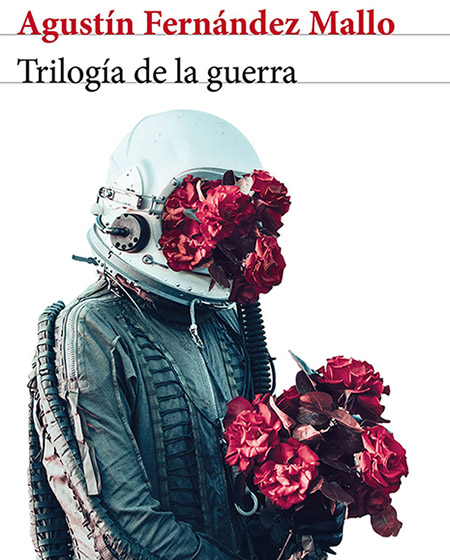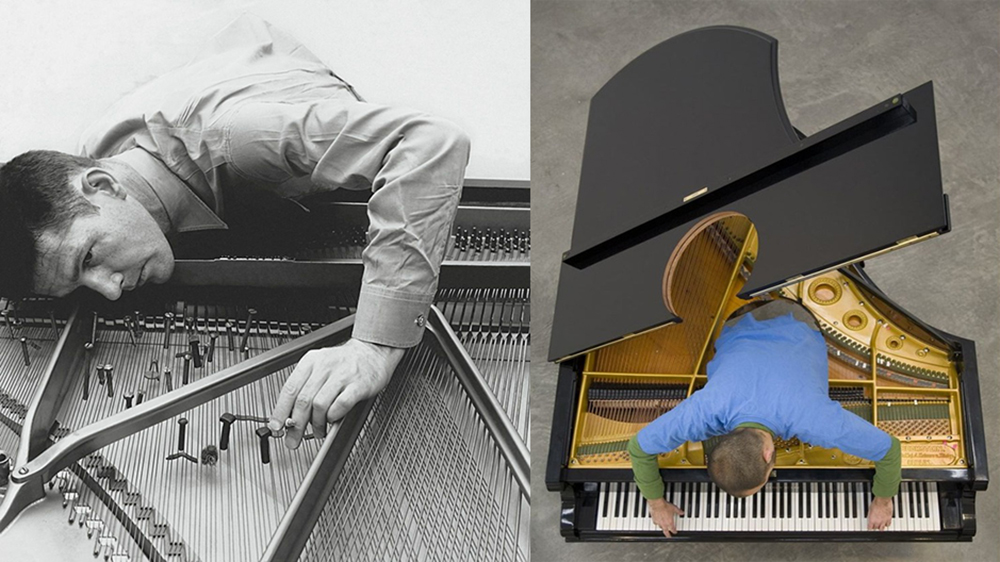info@graf.cat
May 2018
by Marla Jacarilla
The war, the silence, the multitude
“It is a mistake to take for granted what was contemplated”. With this suggestive quote by Carlos Oroz begins Agustin Fernandez Mallo’s last novel, Trilogy of war. However, more than a simple quote, the sentence will become a leitmotiv that will show up a few times through the text, making the characters constantly think about the meaning of it. Trilogy of war talks about war(s), indeed. The Spanish Civil War, the 2nd World War, the Vietnam War or the Syrian Civil War come up among its pages but, deep inside, such wars are only excuses to talk about everything else: the human condition, the impossibility of silence, of solitude, new technologies and how these change our behaviour, the relationships between humans and the relationships of these same humans with their own History. That said, it could seem that it is a pretentious novel, bigger than life, written with the only intention to transcend and become a milestone in the history of 21st century literature. However, the capacity of the author to pay attention to the smallest and most insignificant details and to find the infinite beauty that can exist within them, takes him away (luckily) of such intention. The analytical mind of its author causes the encounter (maybe not so fortuitous) between science and poetry, on the dissection table that is a novel. Will not both, science and poetry, have much more in common than we think?

Already in the first pages, the main character of the book first defines silence as “a fantasy story constructed by our culture, a concept, in conclusion, invented”. Such sentence takes me automatically to think, indeed, in John Cage: in his experience inside the anechoic chamber at Harvard University. In the sound of his nervous system and his blood circulation. Also in 4’33’’ and all the artists that have been influenced by Cage. Jumping to the now, also in the works of Allora & Calzadilla that are exhibited at Fundació Tàpies. And also in the chorus of anonymous voices that flood the viewing rooms of the exhibition Portraits of a multitud, that brings together the last nine years of work by Natalie Bookchin. Or even the disconcerting and risky musical that Bruno Dumont has directed about the childhood of Juana de Arco.
I could easily imagine the main character of the first book of Trilogy of war visiting the exhibition at Fundació Tàpies. Observing, in the centre of the room (or maybe in the corner), a prepared piano. Very different, this is to be said, to the ones John Cage used. In this case, with a black hole in the centre of the instrument of the precise size for a person to fit in and play (with difficulty, since she/he would have to do it the other way round) the fourth movement of the Ninth Symphony by Ludwig Van Beethoven; a symphony that throughout history has been used in contexts such as the Third Reich or the Chinese Cultural Revolution.

Sound is with no doubt the main element that structures the exhibition of Allora & Calzadilla: that of the set piano, that of the man with the deepest voice in the world, that of the oldest musical instrument that has ever been found, that of the blows of the four interpreters in front of a stone from the hadeonic period or that of the whistle that alerts us of the injustices. I imagine that the main character of Trilogy of the war would visit the exhibition with curiosity, but especially with empathy. Because the reflections proposed by the works of Allora & Calzadilla on topics such as the economic crisis, the role of war at different times throughout history, colonialism or the changing value of a gesture depending on the context in which is found are, at the end, very similar to those made between the pages of the book.
I can also imagine this character attending a screening of Jeanette, the childhood of Joan of Arc, listening attentively to the words of a young, low cost and experimental Joan, who expresses her dissidence, her dissatisfaction with the world and her impotence in the face of war, while singing, with no fear to be off pitch, and letting herself accompany in her adventure through the music of Igorrr, French musician influenced (to different extend) by death metal, baroque music or trip hop.
In the same way, all the anonymous characters that inhabit the video works of Natalie Bookchin could appear as extras in the second book of the Trilogy of War, set in the United States. Characters that use Internet and social networks to do therapy, to confess, to comment, to say things that they would not otherwise say, to be themselves but at the same time to be someone else, to get likes, , to be popular, to be accepted, to be loved, to try to integrate in a society that in an exclusive exercise of centrifugal neoliberalism, expels from its core those individuals who are not willing to let themselves be subjugated by the laws of supply and demand. Through their appearance on the Internet these individuals, even without knowing each other, develop a sort of digital community that keeps them united, connected by that particular empathy that causes a shared solitude. The public space has ended up being privatized and the domestic space, once private, has become a public place. We have stopped reflecting on extimacy because we have internalized it, as it already happened with precariousness, capitalism or the reproducibility of the work of art.
“I have seen the best minds of my generation destroyed by Facebook.” The main character of Trilogy of War thinks about this sentence that paraphrases the famous verse of Allen Ginsberg. I know I do not have to take it so seriously but I think it’s important that I keep it in mind.

—
Text by Marla Jacarilla for GRAF. Marla is an artist, film critic and writer.






